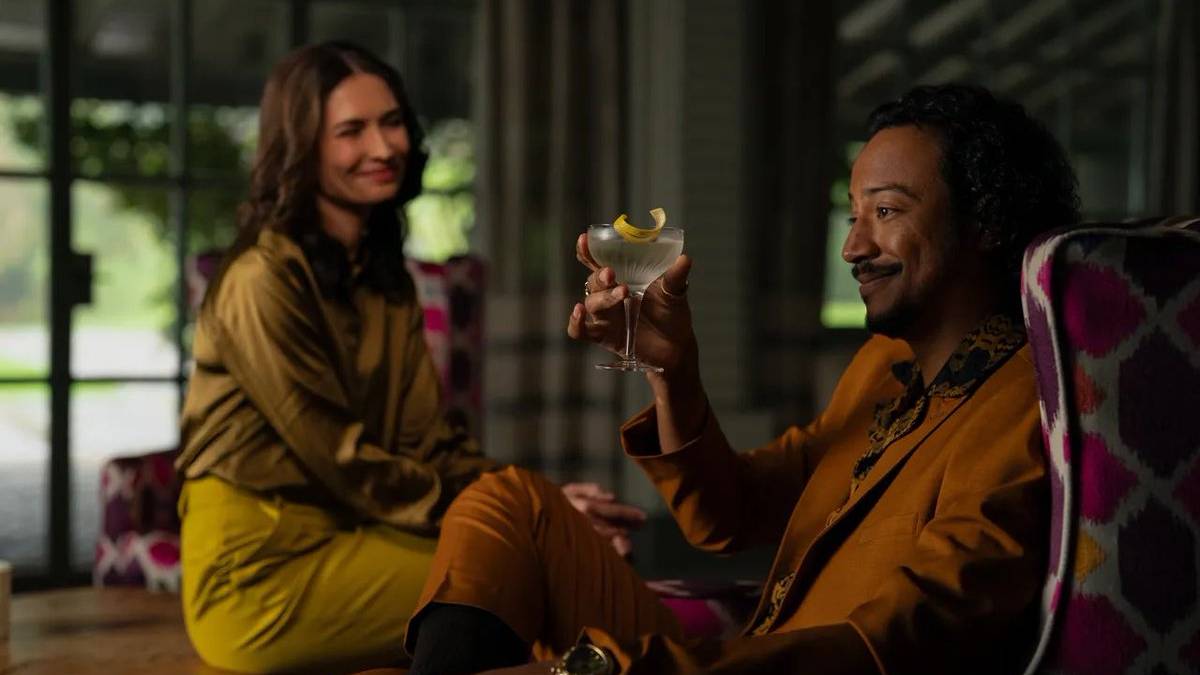Pluribus has been a fascinating experiment thus far, with creator Vince Gilligan bringing his own brand of post-apocalyptic and dystopian fiction to the television landscape. As I suspected when it was first announced, it’s unlike almost anything else currently airing. There are no zombies, nuclear explosions, or a Mad Max-like wasteland involved here. No, instead, the world is brought to its “end” by an alien infection that turns almost every single human on Earth into a happy, content hivemind.
But the audience focus is on Carol (Rhea Seehorn), one of only 13 people in the whole world immune to this mysterious virus. She’s presented as a perpetually miserable character, who is quick to anger and desperately wants to find a cure. Her intense emotions can have a devastating effect on the hivemind, and her temper has literally killed millions of people unintentionally. But it’s not Carol’s actions that have disturbed me the most during the early parts of Pluribus.
Koumba Diabaté is a concerning and fascinating character
He’s not just making the best of a bad situation
When Koumba (Samba Schutte) first makes his introduction in Pluribus, he’s arriving at a meeting with some of the other immune survivors on board Air Force One, and accompanied by a host of women companions. It’s clear from the get-go that he’s embraced this new world, and is even taking advantage of the hivemind’s kindness and inability to say no. On a surface level, you might even think that Koumba is something of a relaxed, comedic relief character for the series. But there’s something inherently disturbing about the way he interacts with the hivemind.
Koumba takes every advantage he can of the hivemind, from the company he keeps to trying to sidestep their unwillingness to kill any living creature so he can still have them make his meat-based meals. Sure, you could argue that the hivemind says yes to all of his requests, so is that really on him? But we know that these are people who can not say no, and yet Koumba treats them like his servants, in more ways than one. And I think that’s a deliberate choice by Gilligan for one big reason.
Can consent exist when you can’t say no?
This question is central to the series
Gilligan is a master at asking tough questions that do not always have the easiest of answers. It’s a big reason that Breaking Bad was one of those shows that hooked me from the start. While Pluribus continues that trend with questions surrounding what it means to be a human being and whether being perpetually happy is actually a terrifyingly inhuman concept, there’s also some less on-the-nose themes at play here.
There’s a pivotal scene in the second episode of Pluribus where Koumba is called out by Carol for how he interacts with the hivemind, including his proclivities regarding his companionship. It’s made clear that the hivemind welcomes this level of affection, so all’s right in the world. Right? Well, no, that explanation didn’t sit right with me, and I don’t think it was necessarily supposed to.
The hivemind can not say no, that’s been established. But, more vitally, everyone except the survivors has been robbed of their individuality and arguably their bodies. Can consent truly be given if saying no is no longer even a choice? Even if it could, what does consent mean when these bodies have essentially been robbed of these people? They are no longer themselves, so any sort of consent as we understand it is not actually possible. To me, that feels like Gilligan once again presenting those weighty questions that need to be explored by not only its characters, but the audience.
I expect these concerns will be thoroughly explored
And others we haven’t thought of yet
I’m sure I’m not the only one who felt these concerns while watching, just as I’m fairly sure it was a deliberate choice by Gilligan and his writing room to hone in on these aspects of what it would be like to live among a hivemind. And maybe we’ll learn more in the coming weeks that prove that these concerns are unfounded and Koumba isn’t doing anything wrong. I don’t expect that to be the case, but it’s possible.
For now, though, it feels like this is the sort of thematic element that will become vital to Pluribus as it goes on. Even in the latest episode, “Grenade,” it’s hinted that we’re heading in a direction where Carol will manipulate the hivemind’s inability to turn down requests in her favor, especially when it comes to finding a cure. That in itself will open a whole new can of proverbial worms for this series, and I expect that Pluribus is about to hit its stride.
Pluribus is proof of Apple’s dominance when it comes to thoughtful sci-fi
Is there another network, premium or otherwise, that is doing the kinds of things that Apple TV+ is with sci-fi? I don’t think there really is. Pluribus is just the latest example of this, and I am so excited that the streamer is embracing this kind of science fiction. Especially in a time when it seems like other streamers, and Hollywood in general, are moving away from smart sci-fi in favor of spectacle.
Speaking of, if you’re looking for another sci-fi show to watch, check out this underrated series on Amazon Prime Video.

- Release Date
-
November 6, 2025
- Network
-
Apple TV
- Directors
-
Adam Bernstein, Zetna Fuentes, Melissa Bernstein
-

Rhea Seehorn
Carol Sturka
-

-

Carlos Manuel Vesga
Manousos
-














